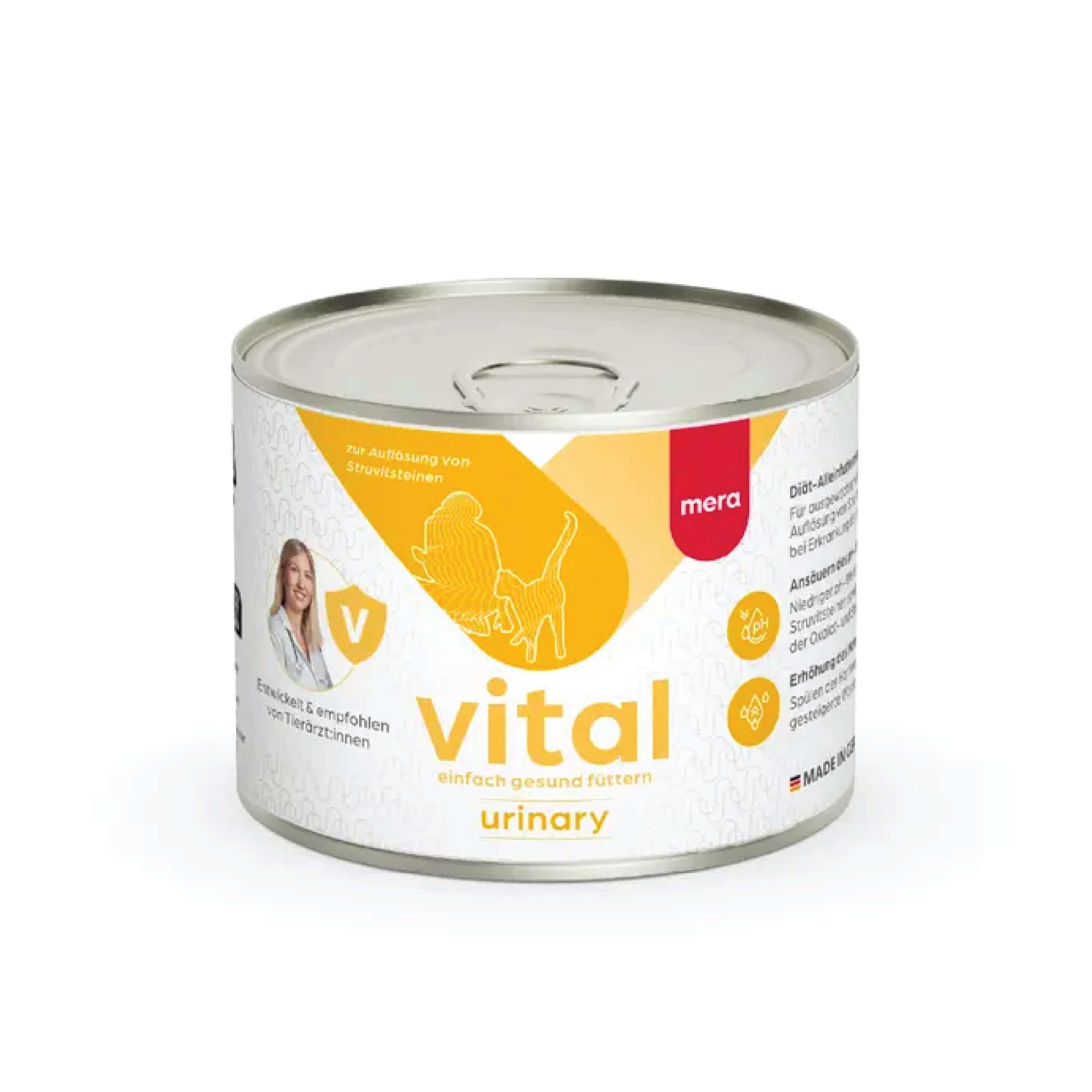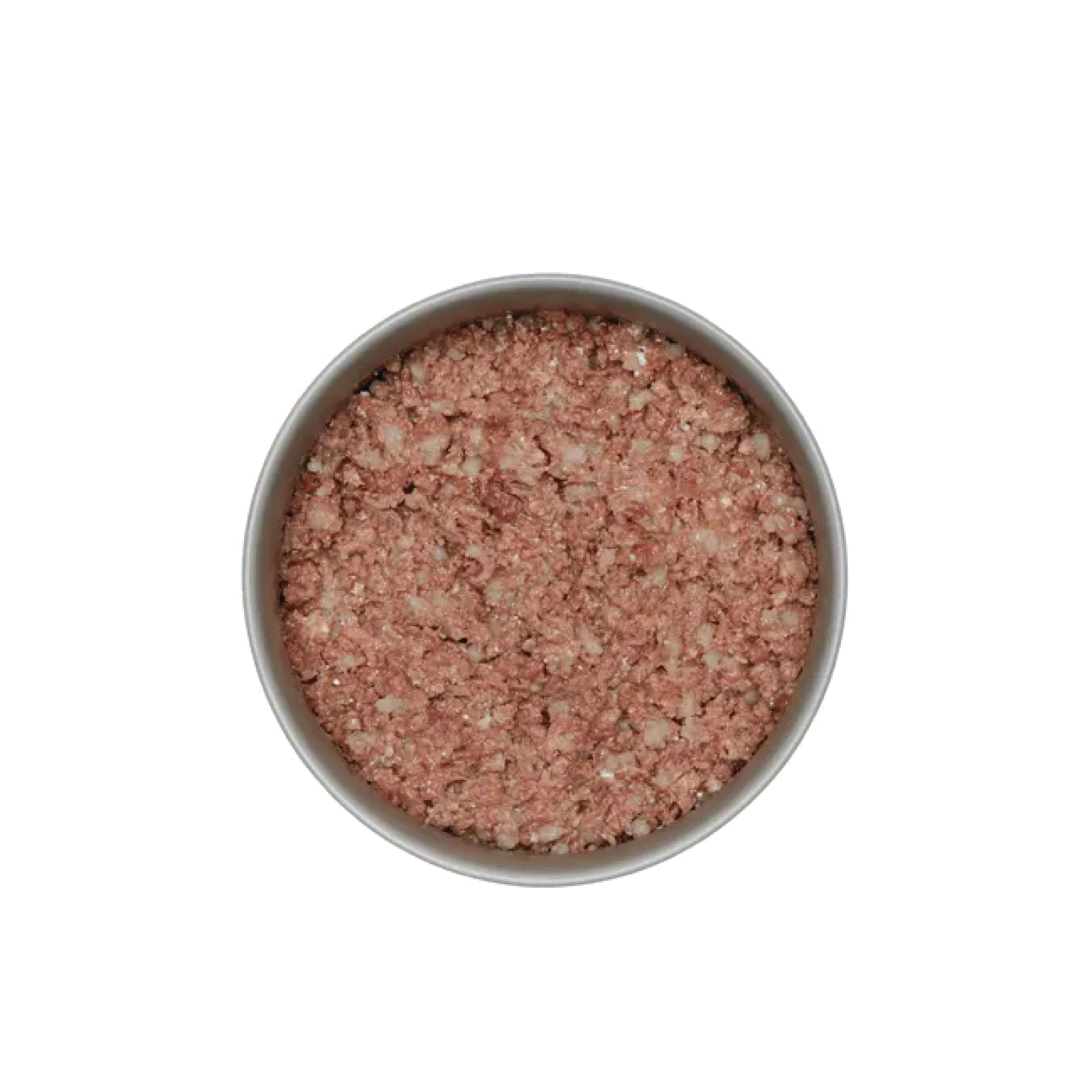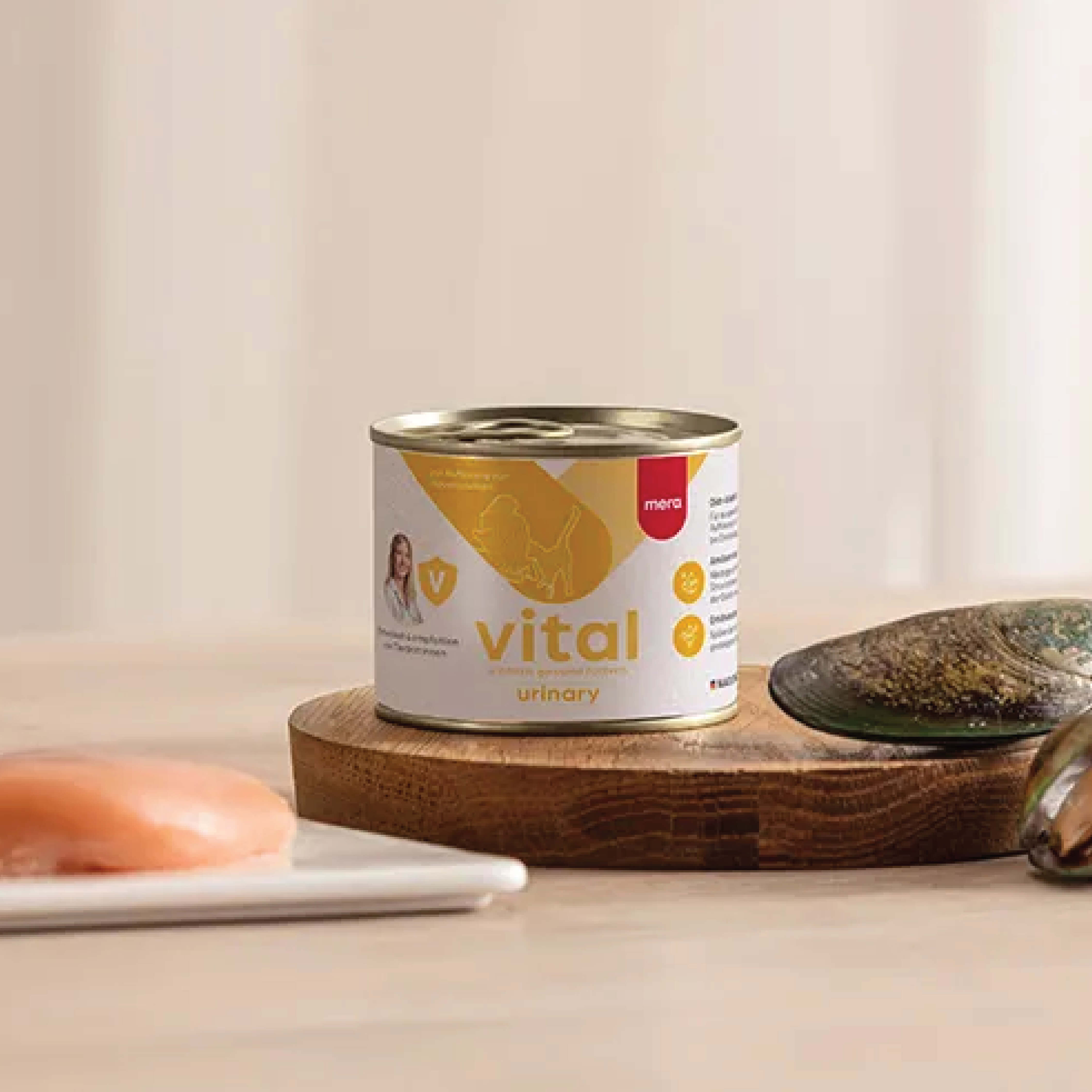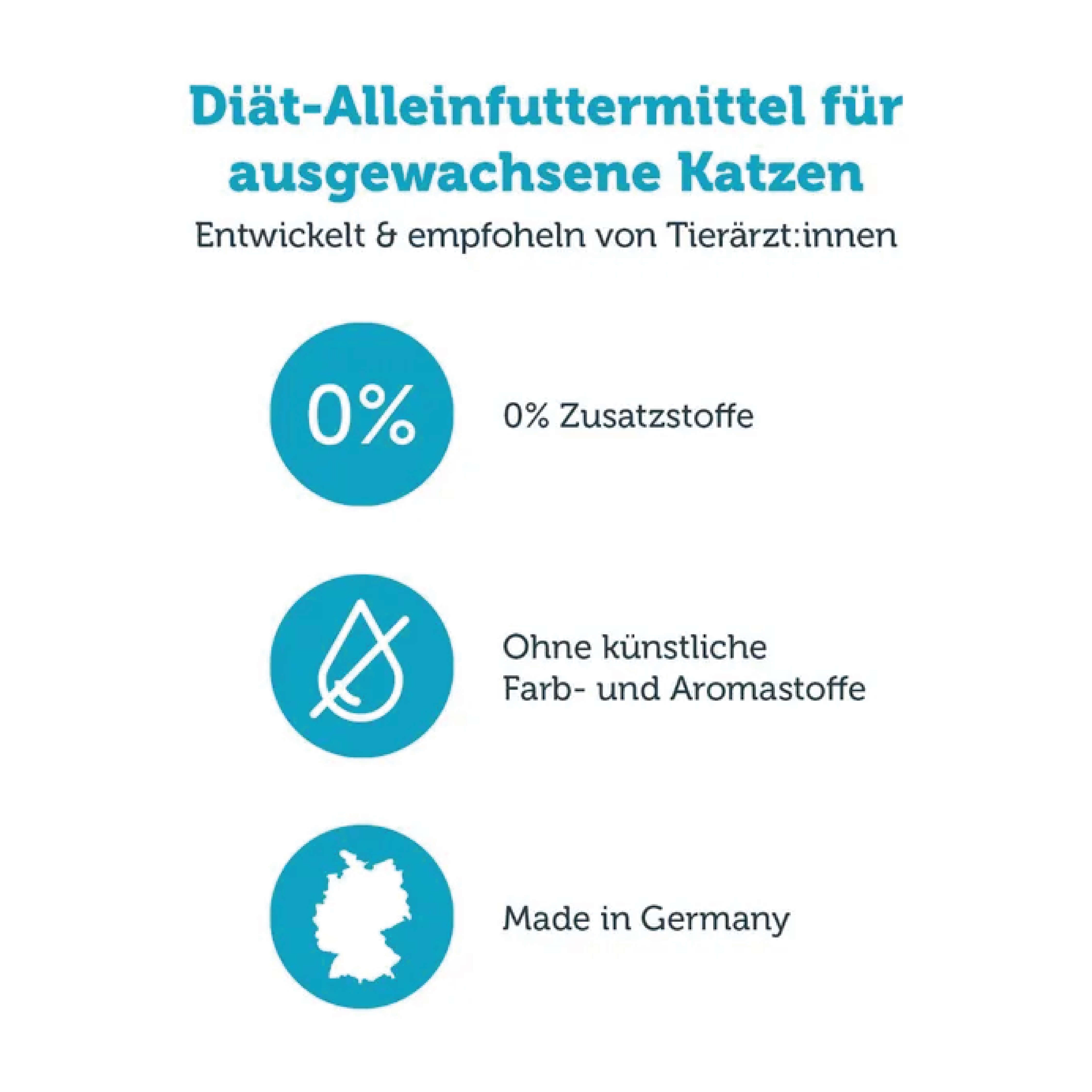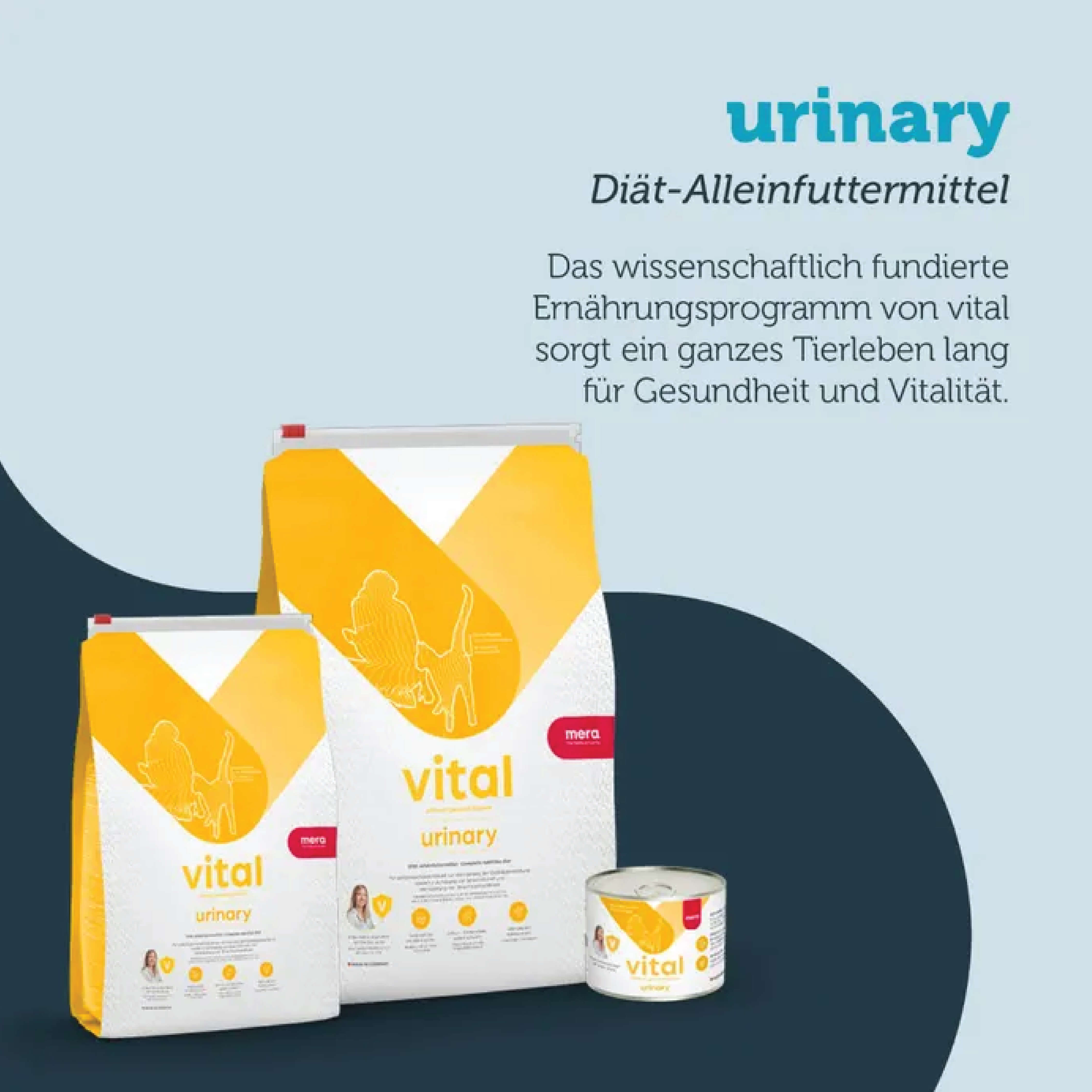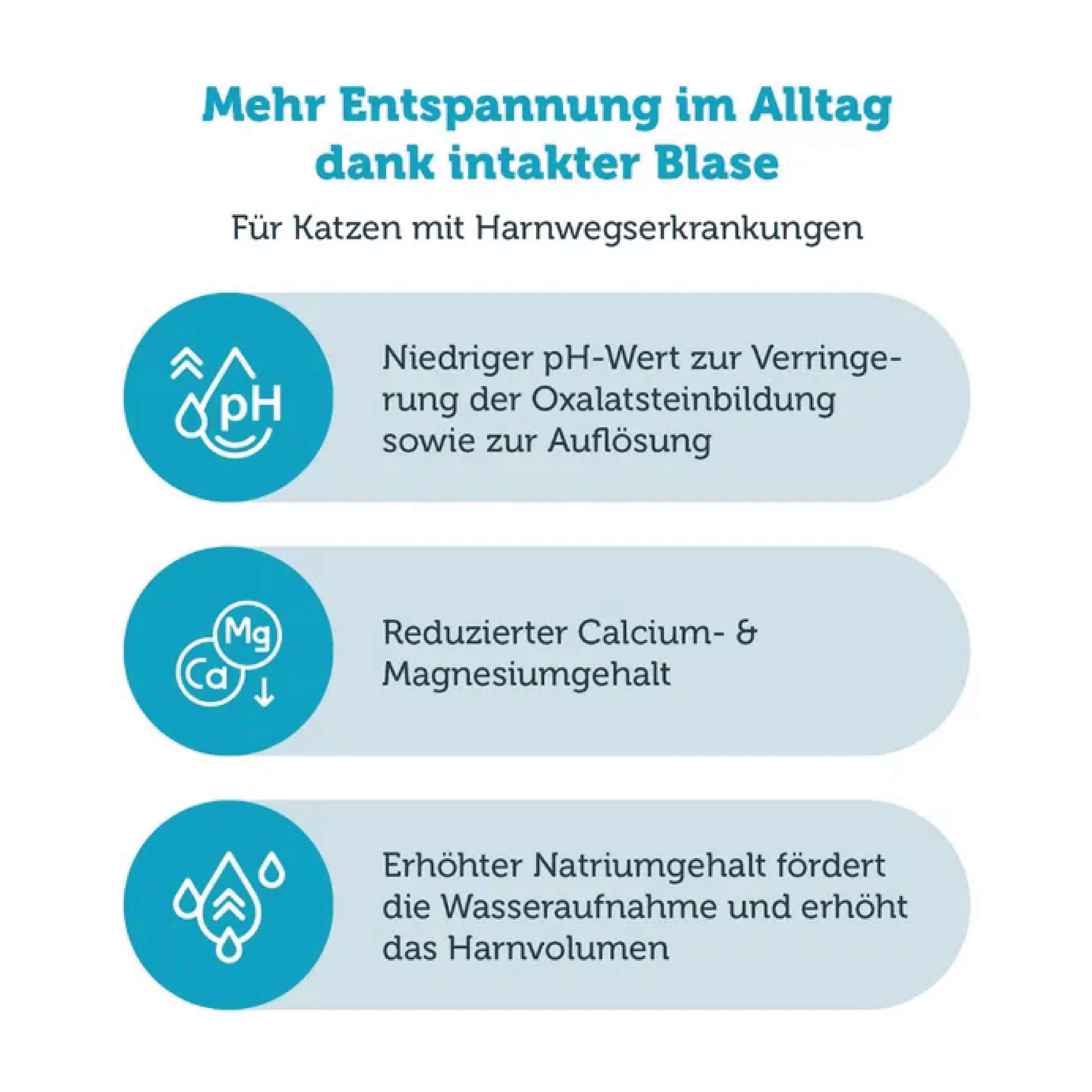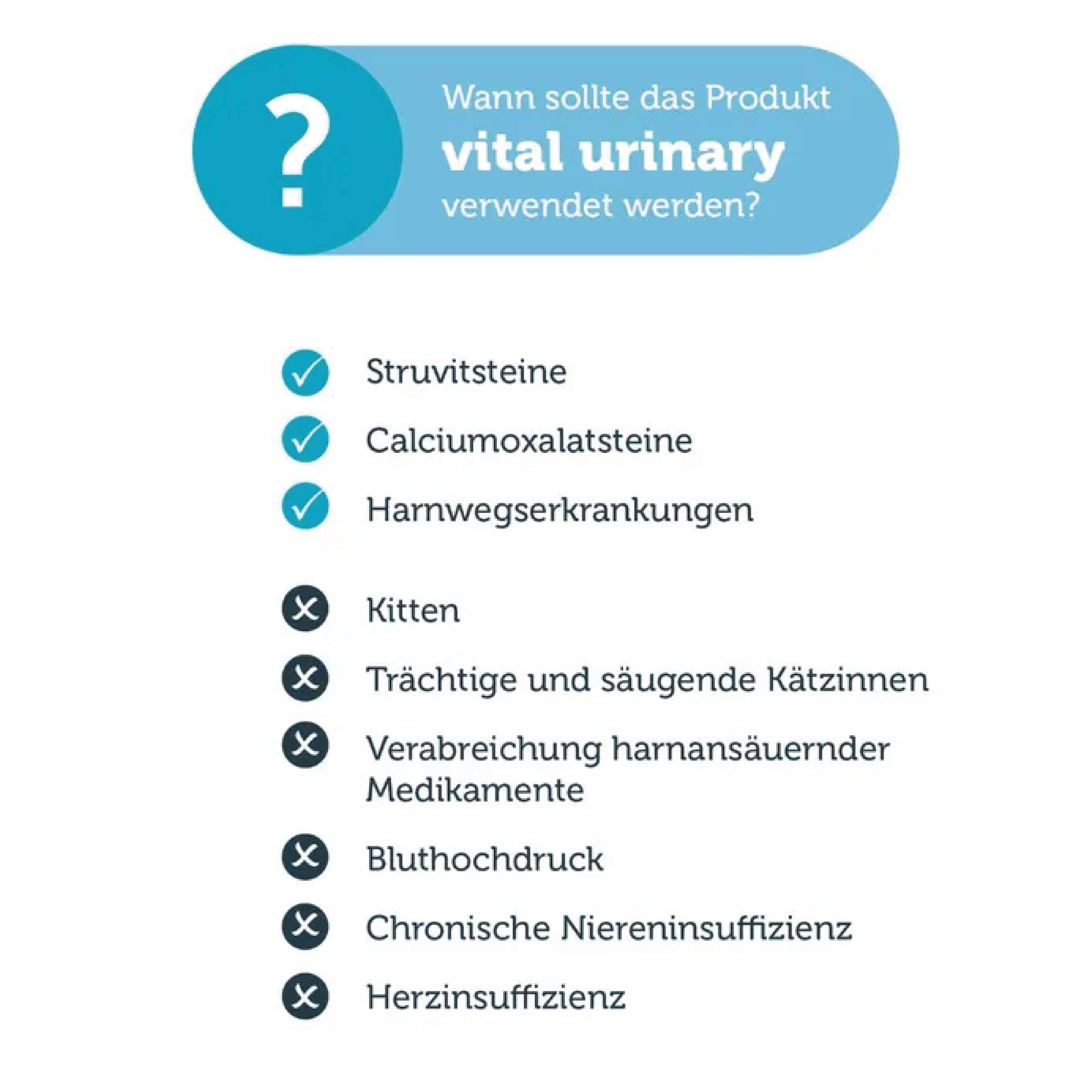More time together and less suffering thanks to our highly effective diet food developed with veterinarians.
Diseases of the urinary organs in cats are summarized under the term FLUTD (Feline Lower urinary Tract Disease).
FLUTD - the disease of the lower urinary tract - includes, for example, bladder infections, urinary stones, blockages of the urinary tract and much more. Bladder infection (cystitis) in cats can have various causes. It can be triggered, for example, by urinary crystals, malformations of the urinary tract and/or pathogens as well as emotional stress. As a result, the mucous membrane of the bladder is irritated and a bladder infection develops with inflammatory products and bleeding. “Mental” related FLUTD occurs most frequently. It is also called idiopathic FLUTD. The exact cause is still unknown to this day. It is assumed that affected cats cannot process stress adequately. Affected cats have pain when urinating and pass urine frequently, but only in small amounts. Smaller accumulations of minerals in the bladder are called crystals or semolina. If these take on a larger shape, they are called urinary stones. Different types of urinary stones can be distinguished based on their chemical composition. The most common types in cats include struvite stone and calcium oxalate stone. Since cats, like their ancestors, usually only drink a little, they only pass small amounts of highly concentrated urine. This means that the urinary tract is less flushed and the minerals in the urine have a lot of time to accumulate into crystals or even stones. A sick animal often visits the litter box and often tries to pass urine (even bloody ones) with pain. It licks its genital area, is apathetic, aggressive and may become unclean. If this is not recognized early, the disease progresses. Then there is a danger to life because the urinary tract becomes blocked and the urine and its “toxins” can no longer be excreted. The urinary bladder can burst and urine enters the abdominal cavity. Male cats are more likely to suffer from such urinary tract blockages. This is due to the anatomical conditions. The urethra is longer and narrower in some places, so even relatively small stones can more easily lead to complete obstruction. The causes of this disease are very diverse: obesity, castration, mineral-rich composition of the feed, too alkaline pH in the urine, germs, etc. can trigger the disease. Overweight cats move less and are often too lethargic to go to the water bowl and litter box. As a result, less water is absorbed and the urinary tract is less flushed and the minerals in the urine form bonds with each other. Lifelong prevention is necessary to avoid relapses.
How urinary wet food supports your cat with urinary tract disease
vital urinary is a high premium diet wet food developed by veterinarians and nutritionists that acidifies your cat's urine and thus promotes the dissolution of struvite stones. Since calcium and magnesium are the main components of urinary stones, vital urinary has an undersaturated - but of course sufficient - content in order to avoid the formation of crystals. Your cat's water intake is stimulated, which means that the minerals in the diluted urine can no longer combine with each other as easily. In addition, the urinary system is regularly flushed and germs and possible “urinary stone building blocks” are eliminated. Glucosamine and chondroitin sulfate can strengthen the epithelial cells of the bladder mucosa, which are often damaged in cystitis and allow pathogenic germs to adhere. Omega-3 fatty acids (EPA and DHA) are able to relieve inflammatory processes in the urinary tract.
Veterinary note:
vital urinary is a high premium diet wet food developed by veterinarians and nutritionists that acidifies your cat's urine and thus promotes the dissolution of struvite stones. Since calcium and magnesium are the main components of urinary stones, vital urinary has an undersaturated - but of course sufficient - content in order to avoid the formation of crystals. Your cat's water intake is stimulated, which means that the minerals in the diluted urine can no longer combine with each other as easily. In addition, the urinary system is regularly flushed and germs and possible “urinary stone building blocks” are eliminated. Glucosamine and chondroitin sulfate can strengthen the epithelial cells of the bladder mucosa, which are often damaged in cystitis and allow pathogenic germs to adhere. Omega-3 fatty acids (EPA and DHA) are able to relieve inflammatory processes in the urinary tract.
General tips for cats with urinary tract diseases:
Indications:
Contraindications:


